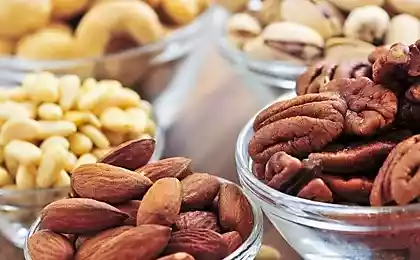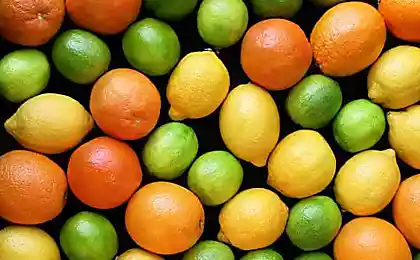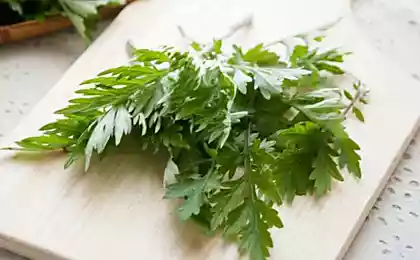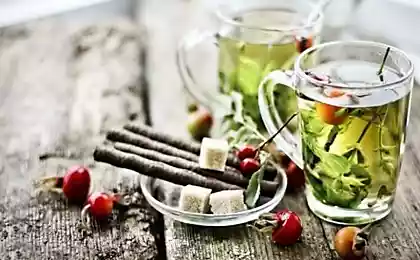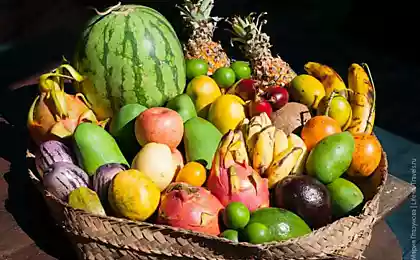499
Eat a few of these fruits three times a day and you will forget about hypertension!
Chinese medicine for over 4000 years the famous berry called "Jujube" or Chinese date. People call it the Tree of Life and Breast Berry with regard to its healing properties.
Jujube is among the top medicinal plants in the world!
Hypertension — boy.
Within one to three months every day we eat 20-30 dried fruit three times a day after meals. And forget about the headaches and pain in the region of the heart, hypertension and related diseases for many years
The real jujube or jujube (lat. Jujuba in the process, the Process sinensis) is a deciduous spiny shrub or small tree 5-10 m tall with a thick crust. Synonyms: jujube, Chinese date, "French breast berry". Gives the maximum healing properties if growing in the highlands on soils poor in humus.
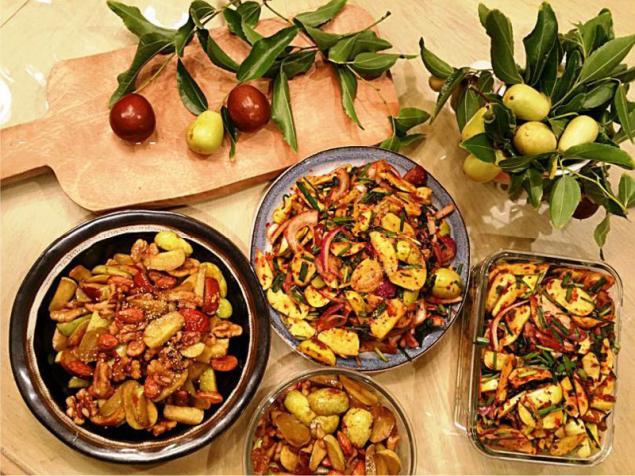
Healers of Eastern medicine have long called unabi "Tree of life". For example, the ancient Chinese monks and hermits used to eat only the fruit of the jujube. By the way, due to the fact that a decoction of jujube fruit has medicinal properties in the treatment of diseases of the respiratory tract it is also called "breast berry".
So, this plant can rightly be called the elixir of health, as its fruit is valuable in a unique blend of minerals, vitamin C and substances with P-vitamin activity, which make our blood vessels more elastic.
The fruits of jujube have been successfully used in folk medicine. In General, long known in countries where the jujube fruit is consumed regularly, very rare cases of hypertension. Therefore, modern medicine recommends to eat 20-30 berries jujube 3 times a day after meals. The course is one to three months, you can use dried fruits, their usefulness is not reduced.
Pharmacological action
Pharmacological and clinical studies have confirmed the diuretic properties of the fruit and leaves ziziphus (used 10% infusion). According to clinical observations, the fruits have hypotensive properties. It is established that optimal anti-hypertensive effect of a 10% decoction at the dose of 60 ml 4-6 times a day along with fresh fruit or candied fruit 8-10 pieces 3-4 times a day. A dose reduction causes less marked hypotensive effect, and increase it by 25 and 50% does not lead to a significant increase in depressant action.
The expressive antihypertensive effect determines the broth, considerably less than fresh and dried fruit. More active effect of the drink may have been predetermined by the fact that medical form of decoction from a pharmacological point of view is more optimal for the manifestation of his actions. Particularly expressive antihypertensive, hemodynamic effect of fruits of a medicinal plant Jujube real observed in patients with hypokinetic type of blood circulation.
Beside hypotensive and hemodynamic effects, phytotherapy fruit ziziphus was good and on clinical manifestations of the disease. In the process of treatment in most patients reduced or completely disappear headaches, dizziness Chairman, tinnitus, palpitations, improve sleep, General health, performance and mood. In addition, a decoction of the fruit determines the moderate sedative effect.
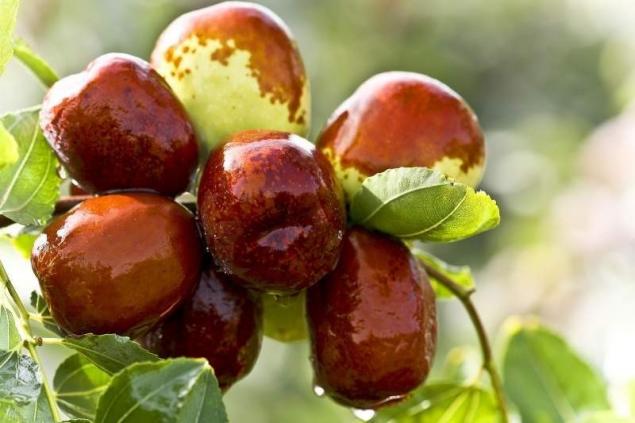
In folk medicine, the fruits are used in decoction in cases of anemia, as an anti-inflammatory softener with catarrh of the upper respiratory tract and fever, ulcer of the intestine and intestinal infections.
There are reports that the fruits of jujube useful for men with sexual disorder. No wonder the ancient Chinese said that the "tincture of the leaves and seeds of jujube-Yes, even five fingers (handful of) its fruit for six or seven years, exempt the person from any disease".
Apparently, therefore, summarizing the above stated facts, famous Ukrainian scientist L. Sinko called them "the most important discoveries of mankind in modern pharmacology".
Side effects, contraindications
Adverse reactions in response to the application of the fruits of a medicinal plant Jujube true, to date, have not been identified. People with low blood pressure the consumption of jujube fruits should be limited. The leaves have persistent anesthetic effect.
The fruit contains from 1.7 to 3% organic acids (mainly malic and succinic). In the fruit also discovered setipinna acid. A distinctive feature of jujube is a high content of vitamin C, from 26 to 1,700 mg/100 g and P-active compounds — from 305 to 1230 mg/100 g.
Vitamins B1 (0.02 mg/100 g), B2 (0.04 mg/100 g), B5 (0.9 mg/100 g) beta-carotene (20-40 mg/kg), steroids, 30% sugar, up to 2.5% organic acids, to 3.7% of fatty oil, up to 3% protein, and 10% tannins. Mineral composition is represented by calcium (26-27 mg/100 g), phosphorus (23-27 mg /100 g), potassium (269-278 mg /100 g), iron (0,7-0,8 mg/100 g), magnesium, cobalt. In the fruit of the jujube also contains a lot of iodine.
In ziziphus fruit contains huge amounts of not only vitamin C (4 times more than currants, and 15 times more than in lemon), rejuvenating and cleaning the blood vessels from cholesterol and vitamin e, protects against oxidation of vitamin C and adrenaline, which reduces permeability and capillary fragility. Pectin reduces the amount of radionuclides and excretes mercury salts, lead, copper, bacterial toxins and radioactive isotopes.
Jujube effectively clears the blood of alcohol and natural drugs. In addition, it cleans the blood vessels and the liver from cholesterol. published
P. S. And remember, only by changing their consumption — together we change the world! ©
Join us in Facebook , Vkontakte, Odnoklassniki
Source: www.facebook.com/permalink.php?id=436053319782849&story_fbid=536854296369417
Jujube is among the top medicinal plants in the world!
Hypertension — boy.
Within one to three months every day we eat 20-30 dried fruit three times a day after meals. And forget about the headaches and pain in the region of the heart, hypertension and related diseases for many years
The real jujube or jujube (lat. Jujuba in the process, the Process sinensis) is a deciduous spiny shrub or small tree 5-10 m tall with a thick crust. Synonyms: jujube, Chinese date, "French breast berry". Gives the maximum healing properties if growing in the highlands on soils poor in humus.

Healers of Eastern medicine have long called unabi "Tree of life". For example, the ancient Chinese monks and hermits used to eat only the fruit of the jujube. By the way, due to the fact that a decoction of jujube fruit has medicinal properties in the treatment of diseases of the respiratory tract it is also called "breast berry".
So, this plant can rightly be called the elixir of health, as its fruit is valuable in a unique blend of minerals, vitamin C and substances with P-vitamin activity, which make our blood vessels more elastic.
The fruits of jujube have been successfully used in folk medicine. In General, long known in countries where the jujube fruit is consumed regularly, very rare cases of hypertension. Therefore, modern medicine recommends to eat 20-30 berries jujube 3 times a day after meals. The course is one to three months, you can use dried fruits, their usefulness is not reduced.
Pharmacological action
Pharmacological and clinical studies have confirmed the diuretic properties of the fruit and leaves ziziphus (used 10% infusion). According to clinical observations, the fruits have hypotensive properties. It is established that optimal anti-hypertensive effect of a 10% decoction at the dose of 60 ml 4-6 times a day along with fresh fruit or candied fruit 8-10 pieces 3-4 times a day. A dose reduction causes less marked hypotensive effect, and increase it by 25 and 50% does not lead to a significant increase in depressant action.
The expressive antihypertensive effect determines the broth, considerably less than fresh and dried fruit. More active effect of the drink may have been predetermined by the fact that medical form of decoction from a pharmacological point of view is more optimal for the manifestation of his actions. Particularly expressive antihypertensive, hemodynamic effect of fruits of a medicinal plant Jujube real observed in patients with hypokinetic type of blood circulation.
Beside hypotensive and hemodynamic effects, phytotherapy fruit ziziphus was good and on clinical manifestations of the disease. In the process of treatment in most patients reduced or completely disappear headaches, dizziness Chairman, tinnitus, palpitations, improve sleep, General health, performance and mood. In addition, a decoction of the fruit determines the moderate sedative effect.

In folk medicine, the fruits are used in decoction in cases of anemia, as an anti-inflammatory softener with catarrh of the upper respiratory tract and fever, ulcer of the intestine and intestinal infections.
There are reports that the fruits of jujube useful for men with sexual disorder. No wonder the ancient Chinese said that the "tincture of the leaves and seeds of jujube-Yes, even five fingers (handful of) its fruit for six or seven years, exempt the person from any disease".
Apparently, therefore, summarizing the above stated facts, famous Ukrainian scientist L. Sinko called them "the most important discoveries of mankind in modern pharmacology".
Side effects, contraindications
Adverse reactions in response to the application of the fruits of a medicinal plant Jujube true, to date, have not been identified. People with low blood pressure the consumption of jujube fruits should be limited. The leaves have persistent anesthetic effect.
The fruit contains from 1.7 to 3% organic acids (mainly malic and succinic). In the fruit also discovered setipinna acid. A distinctive feature of jujube is a high content of vitamin C, from 26 to 1,700 mg/100 g and P-active compounds — from 305 to 1230 mg/100 g.
Vitamins B1 (0.02 mg/100 g), B2 (0.04 mg/100 g), B5 (0.9 mg/100 g) beta-carotene (20-40 mg/kg), steroids, 30% sugar, up to 2.5% organic acids, to 3.7% of fatty oil, up to 3% protein, and 10% tannins. Mineral composition is represented by calcium (26-27 mg/100 g), phosphorus (23-27 mg /100 g), potassium (269-278 mg /100 g), iron (0,7-0,8 mg/100 g), magnesium, cobalt. In the fruit of the jujube also contains a lot of iodine.
In ziziphus fruit contains huge amounts of not only vitamin C (4 times more than currants, and 15 times more than in lemon), rejuvenating and cleaning the blood vessels from cholesterol and vitamin e, protects against oxidation of vitamin C and adrenaline, which reduces permeability and capillary fragility. Pectin reduces the amount of radionuclides and excretes mercury salts, lead, copper, bacterial toxins and radioactive isotopes.
Jujube effectively clears the blood of alcohol and natural drugs. In addition, it cleans the blood vessels and the liver from cholesterol. published
P. S. And remember, only by changing their consumption — together we change the world! ©
Join us in Facebook , Vkontakte, Odnoklassniki
Source: www.facebook.com/permalink.php?id=436053319782849&story_fbid=536854296369417
Innovative water treatment plant based on membrane reactors
Rocket — a taste of the Mediterranean to your garden beds









